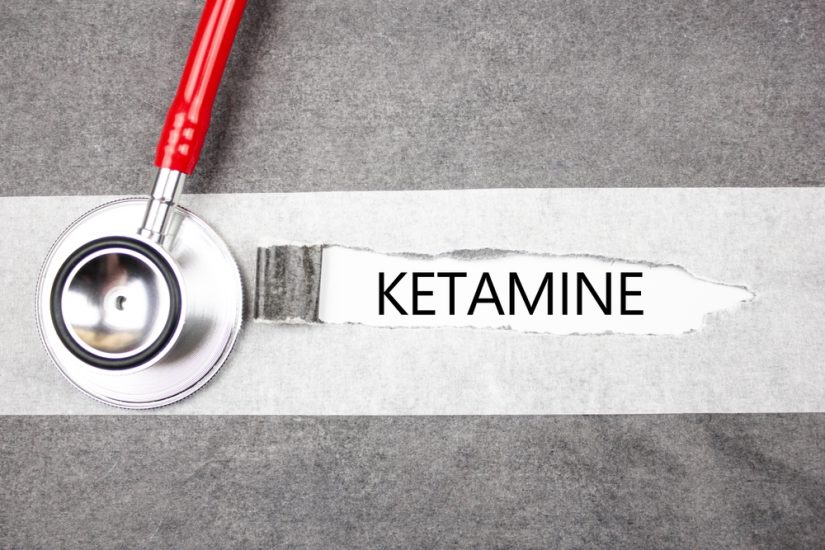- December 12, 2024
- by Shalini Murmu
- Treatment
Table of Contents
The potential of psychedelic therapy is becoming more widely accepted as a strategy for overcoming mental health challenges, including PTSD and depression. Unlike traditional therapies that typically depend on conversation or medication alone, this method operates at a more profound level, tackling emotional barriers and trauma in ways that were once deemed impossible.
It’s crucial to understand that this does not pertain to the recreational use of psychedelics. In a structured, professional context, psychedelic therapy is facilitated by certified therapists. The objective is not merely to provide temporary relief from symptoms but to facilitate deep, enduring healing.
Common Psychedelics Utilized In Therapy
Modern psychedelic therapy relies on various substances recognized for their capacity to induce altered states of consciousness. Although each psychedelic possesses distinct effects and uses, they collectively offer the potential to enable significant emotional breakthroughs when given under professional guidance.
Psilocybin (Magic Mushrooms)
Psilocybin, the key ingredient in magic mushrooms, has attracted considerable interest for its therapeutic promise. Research indicates that it can “reset” the brain’s neural pathways, disrupting negative thought patterns linked to depression and PTSD.
It activates serotonin receptors in the brain, fostering heightened emotional awareness and self-reflection. During guided sessions, participants often gain increased empathy, diminished emotional defenses, and the capacity to confront repressed memories.
Research indicates that psilocybin can alleviate symptoms of treatment-resistant depression after as few as one or two sessions. It is also utilized to lessen PTSD-related anxiety by enabling individuals to process trauma in a safe and distanced manner.
MDMA (Ecstasy)
MDMA-assisted therapy has demonstrated remarkable success in addressing PTSD, earning it a “breakthrough therapy” classification from the FDA. In contrast to recreational use, therapeutic doses are meticulously controlled and combined with psychotherapy.
It elevates levels of serotonin, dopamine, and oxytocin, fostering a state of emotional receptivity, trust, and diminished fear responses. This enables individuals to process trauma without being inundated by distressing memories.
Clinical studies have shown that MDMA therapy can significantly reduce PTSD symptoms, with many patients enjoying long-term relief. Its capacity to enhance emotional connections makes it effective in addressing social anxiety and relationship challenges.
LSD (Lysergic Acid Diethylamide)
While not as prevalent in modern clinical environments, LSD was a groundbreaking compound in the initial exploration of psychedelic therapy. Its profound mind-altering capabilities have demonstrated potential for addressing mental health concerns.
LSD modifies brain function by enhancing communication between previously unconnected areas of the brain. This improved connectivity can facilitate profound self-examination and spiritual encounters. Preliminary research indicates that LSD may aid in reducing alcohol and substance use disorders. Some studies suggest it could help alleviate depression and anxiety in patients dealing with terminal illnesses.
Ketamine
Initially developed as an anesthetic, ketamine has emerged as a prominent treatment for depression and PTSD. In contrast to traditional psychedelics, ketamine is legally administered in clinics globally.
Ketamine targets the NMDA receptors in the brain, fostering rapid synaptic repair and boosting neuroplasticity. Its swift effects often deliver relief within hours, particularly for those with treatment-resistant depression.
Therapeutic Use:-
- Severe Depression: Ketamine is frequently utilized when other antidepressants prove ineffective.
- Suicidal Ideation: Owing to its swift impact, ketamine can diminish suicidal thoughts within hours of administration.
- PTSD Management: Its dissociative effects enable patients to revisit and process traumatic events in a detached and less distressing manner.
How Psychedelic Therapy Works
Mechanism of Action in the Brain
- Serotonin Receptors (5-HT2A): Compounds such as psilocybin and LSD attach to serotonin receptors, enhancing brain activity and triggering altered states of consciousness. This process fosters deeper introspection and heightened emotional awareness.
- NMDA Receptors: By affecting NMDA receptors, ketamine encourages glutamate release, which is a neurotransmitter tied to emotional balance and cognitive function.
- Amygdala and Prefrontal Cortex Activity: The amygdala’s hyperactivity is reduced by MDMA, which controls fear reactions, while it boosts connections with the prefrontal cortex, the region tied to logical reasoning and managing emotions.
These synergistic effects enable patients to safely access and process challenging memories in an emotionally open state.
Neuroplasticity And Trauma Processing
One of the most encouraging features of psychedelic therapy is its capacity to foster neuroplasticity, the brain’s ability to reorganize itself through the formation of new neural connections.
- Breaking Negative Patterns: Chronic depression and PTSD frequently involve fixed neural pathways that reinforce negative thought patterns and emotional avoidance. Psychedelics break these patterns, allowing the brain to “reset” and develop healthier mental frameworks.
- Reprocessing Trauma: By moderating fear responses and encouraging self-reflection, psychedelics assist patients in revisiting traumatic memories without feeling overwhelmed. This enables them to engage with unresolved trauma with enhanced emotional clarity.
Facilitated Therapy Sessions: What to Expect
Psychedelic therapy sessions are not casual experiences but rather meticulously organized processes that include:
- Preparation Phase: Therapists engage with patients prior to the session to build trust, outline expectations, and set therapeutic goals.
- The Experience: Patients receive a carefully monitored dose of the psychedelic under professional oversight, often reclining comfortably with an eye mask and soothing music. Therapists guide them through the emotional journey, providing support when necessary.
- Integration Phase: Following the session, patients collaborate with therapists to reflect on their experiences, translating insights into actionable steps for emotional healing.
Addressing PTSD Through Psychedelic Therapy
PTSD activates the amygdala, rendering individuals hyper-vigilant and emotionally reactive. Many individuals evade confronting their trauma due to overwhelming fear, hindering recovery. Traumatic memories are often stored in fragmented ways, complicating their processing through traditional talk therapy.
How Psychedelics Reduce Fear Responses and Emotional Avoidance
Psychedelics mitigate PTSD symptoms by targeting the brain regions involved in fear, memory, and emotional regulation:
- Fear Response Reduction: Substances like MDMA soothe the amygdala, allowing patients to revisit distressing memories with diminished emotional intensity.
- Emotional Openness: Psychedelics reduce emotional barriers, fostering trust and openness toward addressing challenging feelings.
- Memory Reconsolidation: Psychedelics empower patients to modify the way traumatic memories are stored, lessening distressing flashbacks and nightmares.
Research indicates that many PTSD patients experience significant, lasting reductions in symptoms after psychedelic-assisted therapy. This innovative treatment is transforming how mental health professionals approach trauma recovery, providing renewed hope for those grappling with PTSD.
Is Psychedelic Therapy Legal?
The legality of psychedelic therapy differs between various countries and regions. In the USA, substances including MDMA and psilocybin are still recognized as Schedule I drugs, indicating their illegality at the federal tier. Nevertheless, advancements in research have prompted the FDA to award “breakthrough therapy” designation to MDMA and psilocybin for the treatment of PTSD and depression, which has expedited clinical trials.
Different states and localities, such as Oregon and Colorado, have either decriminalized or sanctioned psilocybin for healing objectives. Although ketamine isn’t classified as a traditional psychedelic, it is legally accessible in numerous countries for individuals suffering from treatment-resistant depression and PTSD recovery through certified clinics. Worldwide, nations like Canada, Australia, and certain areas of Europe are investigating psychedelic-assisted therapies via research trials and limited legal structures.
Which additional mental health issues might psychedelics help with?
Psychedelic therapy exhibits potential that extends beyond the treatment of depression and PTSD recovery. Ongoing studies emphasize its possible benefits for various challenging mental health issues, including:
- Anxiety Disorders: Clinical trials indicate that psilocybin and LSD may relieve symptoms of generalized anxiety, social anxiety, and even existential anxiety in patients facing terminal illnesses.
- Addiction and Substance Use Disorders: Psychedelic therapy, particularly with psilocybin and ketamine, has shown efficacy in addressing the compulsive nature of alcohol and nicotine addictions by transforming thought patterns associated with addiction.
- Obsessive-Compulsive Disorder (OCD): There are researches that suggest that psychedelics can interrupt cyclical thinking patterns, providing relief from compulsive actions.
- Eating Disorders: Psychedelics can aid recovery from conditions like anorexia nervosa by tackling underlying emotional trauma and issues related to self-image.
Is Psychedelic Therapy Safe For Everyone?
Although psychedelic therapy holds considerable promise, it is not appropriate for everyone. The concept of safety is impacted by several different factors, particularly individual mental and physical health, the medications one takes, and their unique history. Individuals dealing with clinical depression, PTSD, or treatment-resistant depression who haven’t found success with typical therapies could gain from psychedelic therapy. Furthermore, individuals dealing with chronic anxiety, addiction, or trauma-related disorders under professional care may also find it beneficial.
Who Should Avoid It:
- Individuals with Psychosis or Schizophrenia: Psychedelics may exacerbate psychotic symptoms or initiate new episodes.
- Heart Conditions: Compounds like MDMA can elevate heart rate and blood pressure, posing risks for those with cardiovascular problems.
- Unsupervised or Self-Medicating Individuals: Therapeutic outcomes are only achieved through guided, professional intervention. Unsupervised use may result in unsafe psychological experiences.
Precautionary Measures:
- Comprehensive medical evaluations are performed prior to the administration of psychedelics.
- Sessions are conducted by licensed professionals trained to offer support for depression while ensuring the safety of the patient.
Need Depression Help? We’re Here for You.
If you’re struggling with clinical depression, PTSD, or treatment-resistant depression, you don’t have to face it alone. At North America Behavioral Health Services, we connect you with renowned expert care in your city.
We understand that healing from any mental health condition can feel overwhelming, but recovery is possible with the right guidance. Our compassionate experts are here 24/7 to help you process emotional challenges, rebuild hope, and regain control of your life.
- Certified Experts: Our team includes licensed professionals dedicated to your well-being.
- Customized Treatment Plans: Every person’s journey is unique. We tailor therapies that align with your specific needs.
- Confidential Environment: Experience empathetic care that respects your healing process and your confidentiality.
Recovery is possible. Begin now!
















